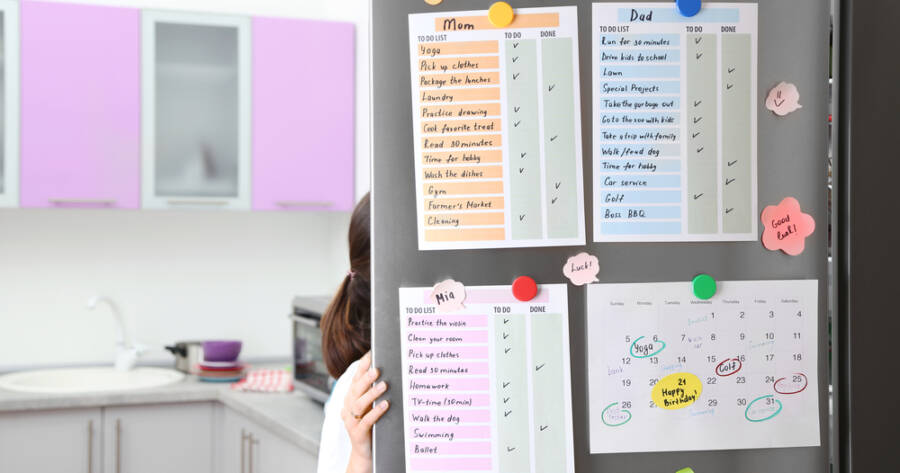Juggling the multitude of activities within a family can be overwhelming, with work schedules, school events, and personal commitments often overlapping. Smart planning holds the key to balancing these elements with greater ease. Utilizing strategic organization methods might help families streamline their day-to-day activities, reduce stress, and improve overall harmony at home. Smart planning can transform how families manage their schedules, potentially fostering a more coordinated and peaceful living environment.
Assessing Your Family’s Needs
Every family has unique dynamics and requirements, which means there isn’t a one-size-fits-all solution for scheduling. Start by conducting a family meeting to discuss everyone’s activities, priorities, and goals.
By understanding these needs, families could identify the most significant time demands and potential conflicts. This collaborative approach ensures that all voices are heard and considered, which may encourage more cooperative scheduling that respects each member’s commitments.
Choosing the Right Tools
The tools chosen for family scheduling can significantly influence how effectively time is managed. Digital calendars, like Google Calendar or Apple Calendar, provide sync capabilities that allow family members to update schedules in real time.
Some families might prefer physical planners or wall calendars for a tangible, visual representation of their schedule. It’s advisable to experiment with different options to see what best suits your family’s habits and preferences, as the tools should simplify, not complicate, your planning.
Setting Realistic Goals
When planning a family schedule, ambition should be balanced with realism to avoid overcommitting. Set achievable goals for each week, considering each family member’s capacity and well-being.
It might be beneficial to prioritize activities based on family values and individual passions, ensuring a focus on what truly matters. By setting boundaries and being mindful of time, families could potentially prevent burnout and remain engaged in their activities.
Emphasizing Flexibility
In family scheduling, flexibility is key to managing unexpected changes, which are inevitable. Life’s unpredictability means some sessions could be missed, or plans altered last minute.
Building buffer times into the schedule and having a contingency plan might help families adapt without too much stress. Encouraging open communication about schedule changes can also create an atmosphere of understanding and collaboration, allowing adjustments to be made smoothly.
Weekly Planning Sessions
Weekly planning sessions can be an effective way to keep everyone on the same page. During these meetings, families can review upcoming schedules, address conflicts, and adjust plans as necessary.
These gatherings might serve as an opportunity for family members to voice any new commitments or changes. By setting aside regular time for these discussions, families could enhance their ability to work as a cohesive unit, ensuring alignment and minimizing surprises.
Encouraging Personal Accountability
Personal accountability in scheduling empowers each family member to manage their commitments responsibly. Teaching children, particularly, about time management by involving them actively in the planning process could instill valuable lifelong skills.
Encouraging the use of reminders and alarms might assist in helping everyone adhere to schedules. As each member takes ownership of their time, it can foster a sense of independence and responsibility that benefits the entire household.
Reflecting and Adapting Strategies
Regularly reflecting on the effectiveness of the family’s planning strategies is important for continuous improvement. Families may consider asking questions like “What worked well this week?” or “What could be improved?” to gain insights.
If certain methods aren’t as effective as hoped, adapting and trying new approaches could provide better results. This iterative process ensures that family scheduling remains dynamic and responsive to changing needs and circumstances.
Learn More Today!
Smart planning might not guarantee a perfectly smooth family schedule, but it can lay the groundwork for a more organized and harmonious life. By understanding each family member’s needs, employing suitable tools, and maintaining flexibility, families may cultivate a balanced and stress-reduced environment.
Regular reflection and adaptation of strategies ensure that scheduling aligns with evolving family dynamics. As families embrace smart planning, they could discover more time for connection, joy, and shared experiences.

